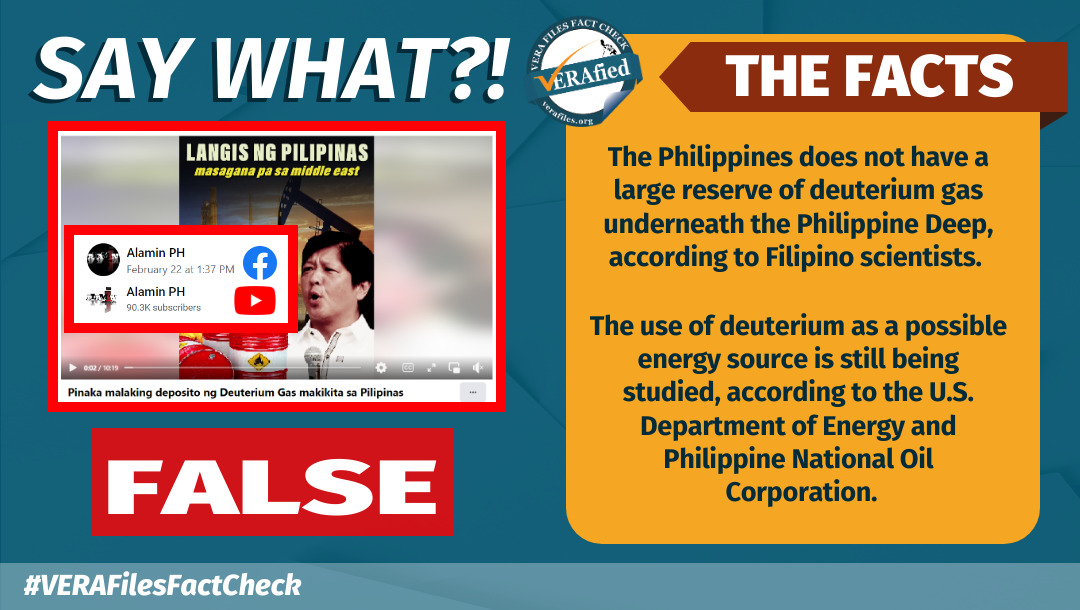A YouTube video claimed that the Philippines has rich deposits of a gas called deuterium, discovered during the administration of former president Ferdinand Marcos. This had been ruled out by what was then called the Office of Energy Affairs (OEA).
“Pinaka malaking deposito ng Deuterium Gas makikita sa Pilipinas (Richest deposit of deuterium gas can be found in the Philippines,” the title of a Feb 22 video by Facebook (FB) page Alamin PH claimed.
Alamin PH’s video stated that deuterium deposits can be found in the Philippine Deep to the east of Surigao. The video cited a Filipino named Cesar Escosa, who first made the claim in 1987.
The claim is not true, according to published research from the UP Third World Studies Center. It has also been fact-checked by Rappler.
“Scientific facts make it impossible for deuterium deposits to be lodged in the Philippine Deep,” according to a 35-year-old position paper by OEA, now called the Department of Energy (DOE).
“Even if, by some natural process, deuterium gas gets isolated from water, its natural tendency would be to rise and escape into the atmosphere because it is much lighter than water,” the OEA further explained.

Studies show that deuterium deposits don’t exist in Philippine deep waters. Roger Posadas, a former dean of the UP College of Science, called Escosa’s claim “oceanographic hallucinations.” The claim is “contrary to actual analysis of trenches and actual measurements of deuterium abundances in the oceans,” he added.
What is deuterium?
Deuterium is a hydrogen isotope: a hydrogen atom that also contains a neutron. Also called heavy hydrogen, deuterium is a colorless, odorless, highly flammable gas used in nutrition assessments and nuclear fusion experiments.
Deuterium can be produced through a technique called electrolysis, which breaks down elements by passing an electric current through water. Extracting pure deuterium from water is expensive and sophisticated, according to energy experts.
Studies about the use of deuterium as a possible energy source is still in the conceptual stage as of 2021, the Philippine National Oil Corp. told BusinessWorld. The U.S. DOE is currently looking into the use of deuterium and tritium for nuclear fusion energy.
The erroneous video, which appeared three days before the EDSA People Power Revolution, got a total of over 592,805 interactions on FB. It is a version of a Jan. 11 video uploaded by YouTube channel Alamin PH, which got 121,481 interactions.
(Editor’s Note: VERA Files has partnered with Facebook to fight the spread of disinformation. Find out more about this partnership and our methodology.)


